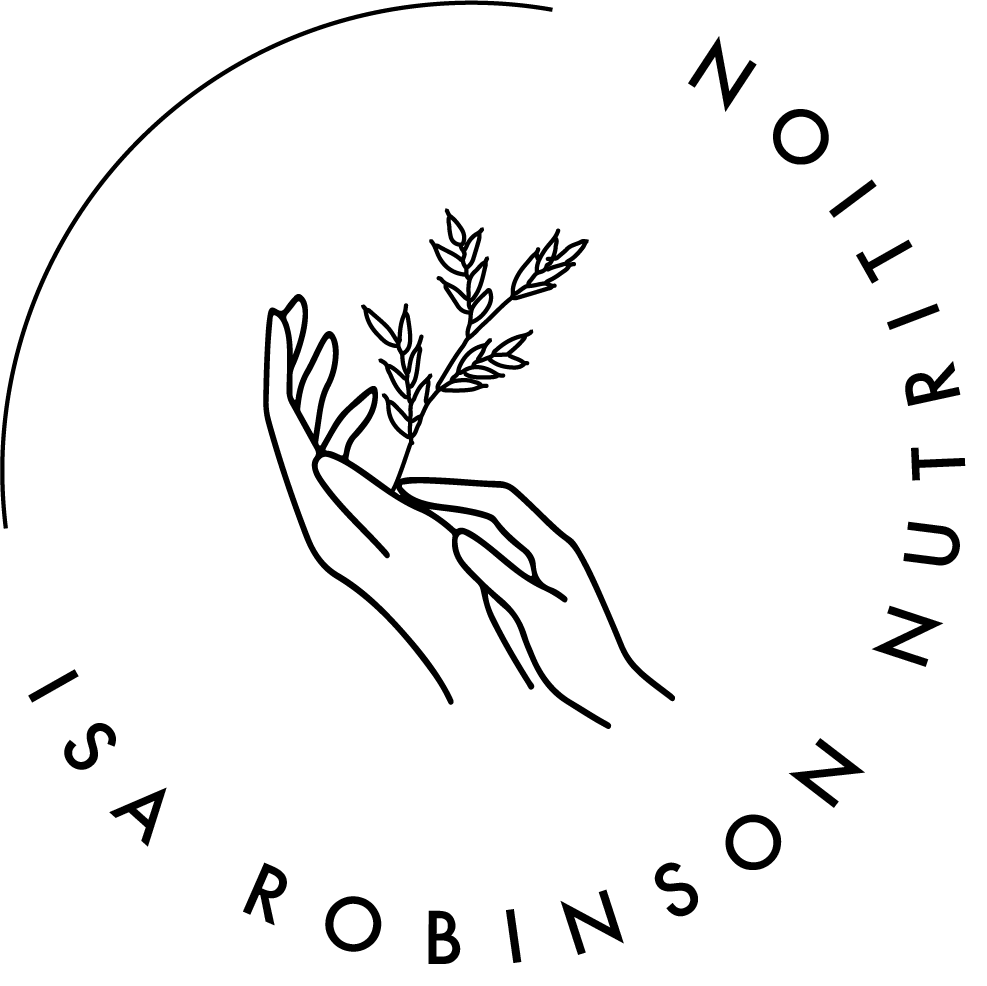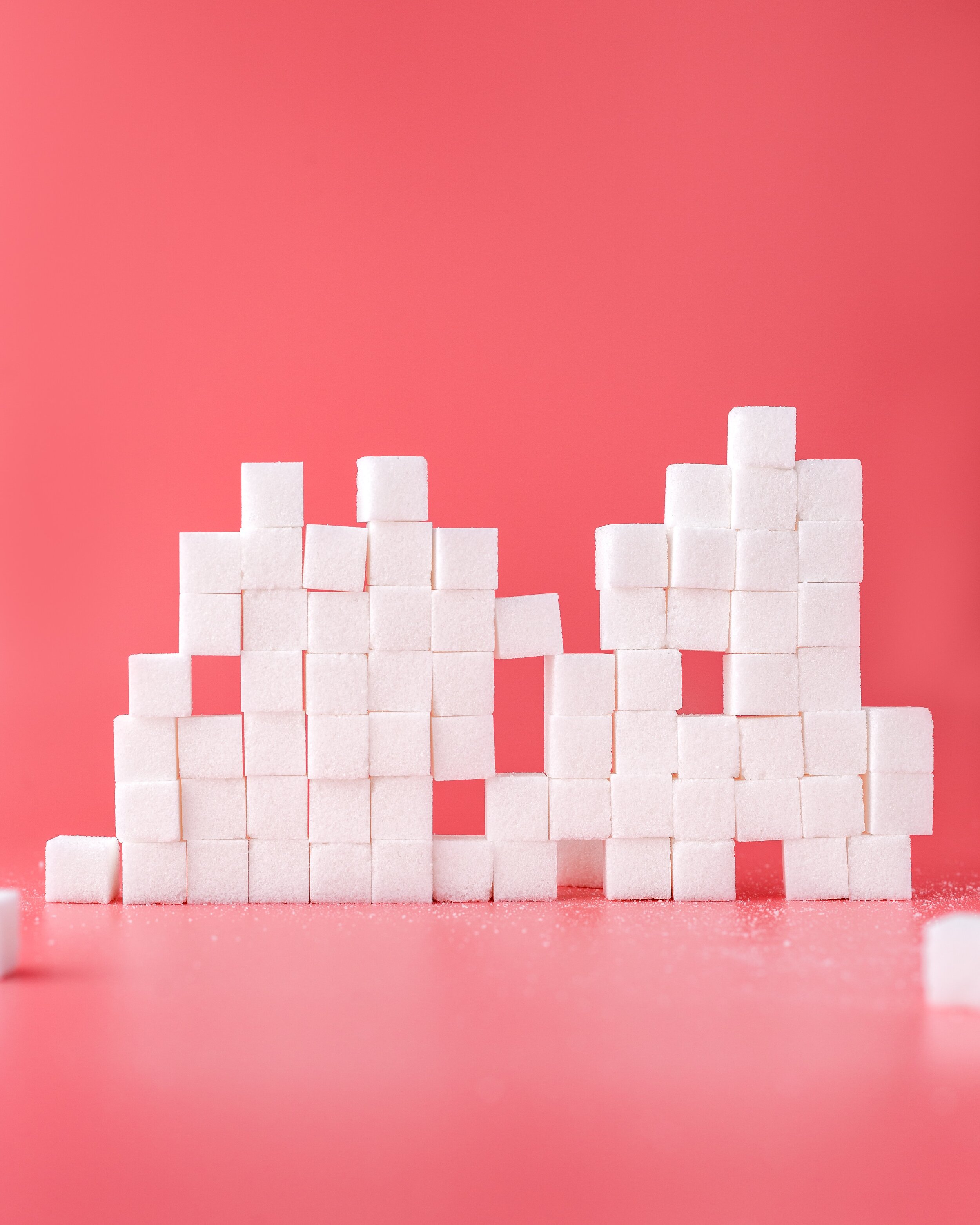Food addiction - Where’s the science at?
Have you ever felt addicted to food? It can be quite common for individuals to experience so-called food addiction. The aim of this article isn’t to invalidate your experience of this, it’s just to explore some of the scientific studies on this topic and then perhaps offer some general guidance for helping you feel less addicted to food.
In short, currently, the scientific community agrees that - “given the lack of evidence supporting it, we argue against a premature incorporation of sugar addiction into the scientific literature & public policy recommendations.”
So where did the idea of food addiction come from?
The dopamine hit
Like many addictive substances food runs through the Mesolimbic system (reward pathway) triggering the release of dopamine, associated with pleasure and well, reward.
But just because there’s a release of dopamine doesn’t guarantee an addictive substance. Food is integral to life, so it’s been hardwired into our DNA to seek out and derive pleasure from food, cue dopamine release. This is an evolutionary protective mechanism, not addiction. Music, hugs and puppies also trigger the release of dopamine, but we don’t exactly think of music as addictive do we? It’s just pleasurable.
Moreover, in rats studies have shown that sensitisation occurs with drugs, which means you need a bigger hit to get a dopamine release. However, this sensitisation has not been shown with food and sugar.
The Yale Food Addiction Scale
Currently, all the human research to support food addiction is based on the Yale Food Addiction Scale. This scale asks research participants things like:
I worry about eating too much food.
The way I eat has made me feel sad, nervous or guilty
I eat food even when I am not hungry
I eat until my stomach hurts or I feel sick
I am sure many of us have felt these things, some are a normal response to the pervasive diet culture we live in.
Interestingly, if you compare the Yale Food Addiction Scale to surveys question to measure restrictive or disordered eating behaviours, you see very similar outcomes.
For example, individuals with disordered eating or eating disorders may worry about eating too much and experience negative emotions bound up with food and eating. Individuals who diet, restricting food until they become extremely hungry, may experience a primal drive to eat that results in rebound eating, eating more than what we need and not feeling so good.
Could it be that in restricting food, we set ourselves up for disordered eating behaviours which may manifest as loss of control, compulsivity and addiction? It strikes me as a major red flag that the Yale Food Addiction Scale completely overlooks an individuals experience of restriction and dieting.
We’re out of control, or are we?
Some proponents of food addiction theory state that food must be addictive because we can’t stop ourselves eating it and frequently overdo it, this is especially true with regard to highly palatable, sweet, salty or high fat foods.
For example, studies frequently contest that rats “binge” on sugar acting compulsively as though they are addicted. However, rats only binge on sugar when they have been periodically “fasted”. I.e. they are not given any food for a period of time and then given free access to it. Sounds to me like a very normal response to hunger and deprivations rather than an addiction, whereby not eating all day can result in rebound eating and wanting to consume everything in sight – can anyone relate?
In another study rats were allowed to self-administer either a sweet solution or cocaine, they picked sugar which sparked punchy headlines. However again, I speculate the majority of individuals if offered either long-term food or cocaine would probably pick the food! I would like to point out here that we are humans not rats!
But I feel addicted to food
Just because I think we should be moving away from the rhetoric of food being addictive doesn’t mean I want to discredit anyone’s personal experiences with feeling out of control around food.
Whilst evidence as it currently stands contends that we are not addicted to a particular component of food, food behaviours can become compulsive and disordered. We also see this in behavioural disorders like those with gambling and video games.
Authors of Intuitive Eating Tribole and Resch also talk about learned conditioning e.g. having having popcorn at the cinema or pretzels on the airplane are examples of this where we are taught to eat in accordance within certain contexts. In an experiment with dogs, Dr Pavlov gave his dogs a treat every time he rang a bell. After conditioning, he could get is dogs to salivate just by ringing the bell. Similarly, repeated exposure to popcorn at the cinema as children, means as adults we conjure up images of popcorn just by thinking about the cinema. This isn’t necessarily bad, it’s just to illustrate this idea of learned conditioning as opposed to addiction. Interestingly, Dr Pavlov also managed to decondition his dogs overtime by ringing the bell, but not giving the treat. In sum, learned conditioning can be unlearned and isn’t an addiction per say.
So just some questions to pose to you if you’re feeling a loss of control or addicted to a particular food:
1) Are you eating enough
Just like the rats who “binged” on sugar when it was restricted, it is likely food restriction will lead to overeating and feeling out of control around food. It is important to make sure energy intake where possible is consistent and regular throughout the day.
Research has shown that when the body is not receiving enough energy food will dominate thoughts. For example, in the Minnesota starvation experiment, subjects on a semi starvation diet began to obsess about food including watching endless cooking programmes and reading cookbooks. One might say, they became addicted to it, but really it was the result of restriction and deprivation.
2) Off limits foods
When foods are off limits we will want them more. It’s the forbidden fruit phenomenon playing out in modern day, whereby as soon as you tell yourself you’re not allowed X food for the week, you will consistently think about X food!
In fact, in a scientific experiment where researches told children they could only eat red M&Ms not yellow, guess which one they wanted more?
Giving yourself full permission to eat ALL foods takes the power away from them via a process called habituation which helps feelings of intensity and urgency around specific foods dissipate. When you do enjoy food, you can eat it mindfully and fully appreciate the different flavours and textures, stopping when you’re satisfied safe in the knowledge you can have them again the next day.
3) Is there an underlying emotional trigger?
Using food to soothe difficult emotions is a normal part of human nature and we shouldn’t berate ourselves for this. In the grand scheme of life, there are far more dangerous coping mechanisms.
The main issue is when food is the only tool in our toolbox to manage. Thus, the idea is to accept food may serve a purpose and work towards acceptance, whilst also expanding the toolkit to include a whole range of different skills and ideas. If you are frequently using food for difficult emotions it is really important to seek professional support. If you feel this applies to you please do seek help from your GP / health care professional.
Wider reading on the topic
The HAES files: Exploring Food Addiction By Marsha Hudnall, MS, RD
Sugar Addiction: A Summary of the Science By Marci Evans, RD
Food Addiction: What does the research say? By Maci Evans
Is Sugar actually addicting and inflammatory by Robyn Nohling
You aren’t addicted to sugar, but here’s why you might think you are by Emily Fonnesbeck, RD
Are you addicted to food by Sydney Cochran, MS, RD, LD
Podcasts on the topic
More Than What you Eat Ep12 Do you really have food addiction with Marci Evans
Don’t Salt my Game E70 - Body Image, Self compassion & Food Addiction with Marci Evans, RD
Dietitians Unplugged Podcast Ep39 - Is sugar addiction a real thing? with Tiffany Haug.
Positive Nutrition Ep94 - Food addiction: fact or fiction?
Food Psyche #80 - The truth about “food addiction” with Marci Evans
Real Health Radio Ep005 - Cravings and food addiction
References
https://www.ncbi.nlm.nih.gov/pmc/articles/PMC5174153/
https://www.ncbi.nlm.nih.gov/pmc/articles/PMC1931610/
https://www.ncbi.nlm.nih.gov/pubmed/17490786
https://www.ncbi.nlm.nih.gov/pmc/articles/PMC2235907
https://pubmed.ncbi.nlm.nih.gov/23057499/







